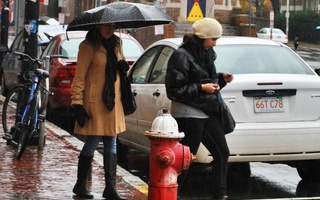Four scientists at the University told a Reunion crowd yesterday about the problems of their work and their hopes for future advancement.
George B. Kistiakowsky, Abbott and James Lawrence Professor of Chemistry and former special assistant to President Eisenhower for Science and Technology, said that a new characteristic of science--that of its involvement with public policy--presents additional problems to the scientist. Scientists are pleased with the increased awareness of science, he said, but perplexed about the extent and kind of involvement the field ought to have with government.
"The scientist must give only scientific advice," he explained, "and government officials must make their partisan decisions--without taking the time to study physics, biology, or chemistry."
Decisions for the administrator include whether federal support should go to individuals working quietly on potentially spectacular experiments, to large group projects on basic research, or for technological application; to university scientists or to separate federal projects; for military defense, or for other aims.
Recently, Eisenhower's former advisor said, governments have discovered that "non - technological" accomplishments have a great effect upon international relations.
Edward M. Purcell, Gerhard Gale University Professor and a Nobel Prize winner in Physics, spoke on the state of the study of physics around 1936, when physicists thought that they had successfully narrowed down the elementary particles of matter. Since then, new discoveries have made study more complex--the science has opened wide so that any number of paths are possible in the future.
Biology, according to another speaker, is now experiencing the "funneling" that physics had in the Thirties. Matthew S. Meselson, assistant professor of Biology, told the alumni audience that biologists, the more they investigate, think that they have narrowed down "elementary particles" of living matter.
He later described the present and future in the study of the DNA chain. He did not rule out the possibility that his area of biological sciences could also "open wide" as the physical sciences have done.
Read more in News
HarvardRecommended Articles
-
HMS to Grant New Standing For Nat Sci 8Premedical students may elect Nat. Sci. 8 plus one half course in Biology insted of Bio 1, Edward O. Wilson,
-
Would You Believe Lemon Leptons And Magic Muons?I deplore articles On nuclear particles. I see no reason To extol the meson. Colored or albino, I dislike the
-
$11.5 Million Harvard-MIT Atom-Smasher Will Go Into Operation Here Next MonthAbout one month from today, the world's most powerful electron synchroton will begin conducting in Cambridge the fastest particle acceleration
-
SCHEDULE OF MAKE-UP EXAMINATIONSMake-up examination in the following courses will be held at 2 p.m. In Harvard 6. MONDAY. APRIL 8 Chemistry A
-
 Makin' It Rain
Makin' It Rain













